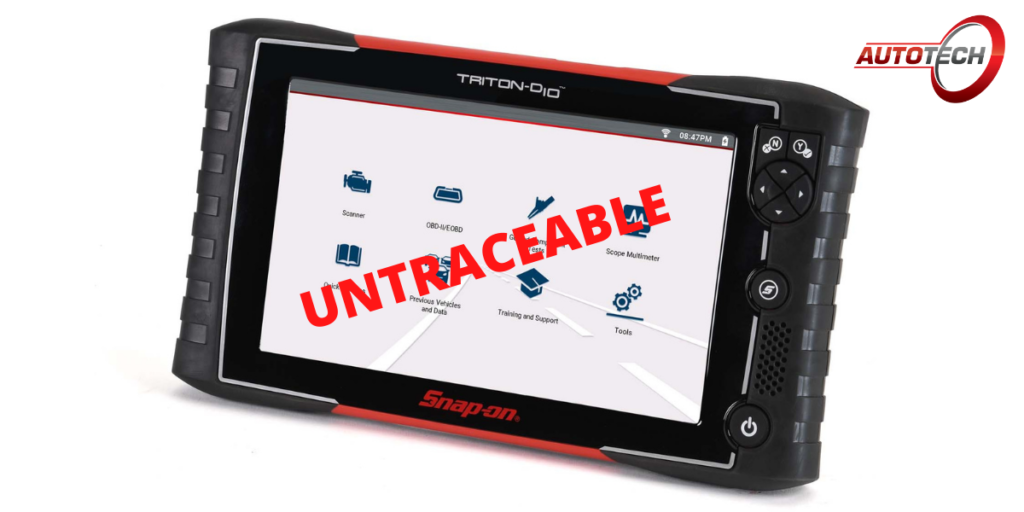Can Dealerships Detect Mileage Blockers?
Mileage blockers, also known as mileage stoppers, are devices that prevent a vehicle’s odometer from recording distance while it’s in use. While the idea of using a mileage blocker might raise eyebrows, many car enthusiasts, particularly those involved in tuning and testing, find these devices useful for legitimate reasons— Like in these cases, you’re testing performance, not racking up actual road miles. A mileage blocker can ensure that your car’s odometer reflects only real-world driving.
But one question that’s commonly asked by those curious about mileage blockers is: Can dealerships detect them?
Let’s dive into the reality of mileage blockers, the technical aspects of their detection, and what it means for UK car owners who might be considering their use.
What Are Mileage Blockers and Why Do People Use Them?
A mileage blocker is an electronic device that interrupts the signal between a vehicle’s odometer and the speed sensor, effectively preventing the recording of mileage while the car is in motion. Unlike odometer rollback devices—which are illegal and designed to tamper with recorded mileage—mileage blockers stop the recording altogether, which can be useful in very specific scenarios.
Common legitimate use cases for mileage blockers include:
- Testing and Tuning: If you’re testing a car on a dynamometer or making adjustments to its performance, you may not want to rack up unnecessary miles, as the car isn’t being driven on public roads.
- Track Days and Racing Events: During non-road events like track days, enthusiasts may want to protect their car’s mileage since track use isn’t reflective of everyday wear and tear.
- Preserving Lease Agreements: Some drivers use mileage blockers during non-road activities to avoid exceeding the mileage limits of a lease agreement. Vehicles under lease often have strict mileage caps, and using a blocker during controlled, off-road events like dyno tuning or exhibitions ensures that only road miles are counted toward those limits.
However, it’s essential to understand that using a mileage blocker to hide a vehicle’s true mileage for resale purposes is illegal. While the device itself may have legitimate uses, any attempt to deceive a buyer about a car’s true mileage is considered fraud in the UK under the Consumer Protection from Unfair Trading Regulations 2008.

Now, onto the central question: Can dealerships detect the use of a mileage blocker?
1. Direct Detection is Rare
In most cases, dealerships cannot detect the use of a mileage blocker unless they physically find the device in the vehicle. This is because mileage blockers are designed to stop the odometer from recording mileage without leaving much of a trace. The device operates by interrupting the signal from the vehicle’s speed sensor, meaning the car’s electronic control unit (ECU) is never aware that anything unusual is happening.
Unlike traditional odometer rollback methods, which modify recorded mileage data (and are often easy to spot), a mileage blocker prevents the recording of mileage altogether. If the device is removed before the car is brought in for a service or diagnostic check, there’s typically no direct evidence that a mileage blocker was ever used.
2. Diagnostic Tools Can Only Reveal Limited Information
Modern cars are equipped with advanced diagnostic systems, and dealerships have access to powerful diagnostic tools that can scan various vehicle control modules for data inconsistencies. However, these tools cannot directly detect the use of a mileage blocker. They can only flag potential issues if certain pieces of data don’t match up—such as engine hours, fuel usage, or wear indicators that suggest the vehicle has been used more extensively than the mileage reflects.
That said, these inconsistencies don’t definitively prove that a mileage blocker was used. At best, they might raise suspicion, but without physical evidence of a device or explicit admission from the owner, a dealership is unlikely to make concrete claims.
3. Physical Inspection is Still Important
Dealerships can detect possible mileage discrepancies through visual inspection. For example, a car that has suspiciously low mileage but shows signs of extensive wear on interior components like the pedals, seats, or steering wheel could raise questions about whether the odometer reading is accurate. But, again, this doesn’t necessarily lead to the conclusion that a mileage blocker was used—it could just as easily be attributed to odometer tampering or natural wear over time.
Can Using a Mileage Blocker Be Ethical?

The use of a mileage blocker is a grey area. While using it to falsify mileage for resale purposes is illegal, there are cases where it can be used legitimately—particularly in environments like car tuning, performance testing, or off-road driving.
If you choose to use a mileage blocker, it’s important to consider the ethical implications. Here are a few points to keep in mind:
- Full Disclosure is Key: If you’ve used a mileage blocker on your vehicle, it’s important to disclose this information if you ever plan to sell the car. While the mileage recorded may reflect only on-road use, failing to inform a buyer of the car’s full history (including time spent in testing environments or at track events) could be considered deceptive.
- Use it for the Right Reasons: Mileage blockers should be used only when truly necessary, such as in closed, controlled environments like testing or tuning. Using the device to artificially lower a vehicle’s mileage for personal gain is not only unethical but also illegal.
- Ensure Proper Removal Before Servicing: If you use a mileage blocker, it’s crucial to remove it before bringing your vehicle to a dealership or service centre. This isn’t just about avoiding detection; it’s about ensuring that your vehicle can be properly serviced without any disruptions caused by the device.
Legal Considerations in the UK
In the UK, tampering with an odometer to mislead a buyer is a serious offence. If a dealership or buyer suspects that mileage has been manipulated and can prove it, the seller could face severe consequences, including fines or possibly even imprisonment.
Even though a mileage blocker is harder to detect than traditional odometer rollback devices, it’s the intent that matters most. If a vehicle is sold with the intent to deceive a buyer about its mileage, the use of a mileage blocker could still land the seller in legal trouble.
Conclusion: Know What You’re Getting Into
So, can dealerships detect mileage blockers? Not easily. Most diagnostic tools won’t pick up on a mileage blocker unless physical evidence of the device is found. However, mileage blockers should only be used for legitimate purposes, like testing or track days, and never to deceive a potential buyer.
The key takeaway for UK car enthusiasts is that transparency and ethics are paramount. If you’re using a mileage blocker for tuning or off-road activities, ensure that any potential mileage discrepancies are properly disclosed when the time comes to sell your car. By being upfront and honest, you’ll not only protect yourself from legal trouble but also maintain the trust of buyers and fellow enthusiasts alike.


Leave a Reply